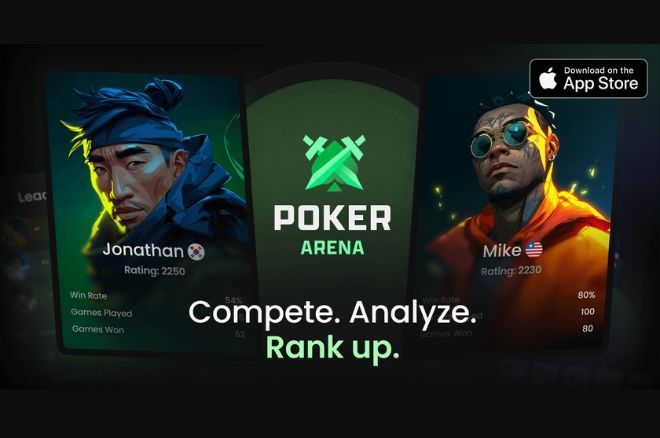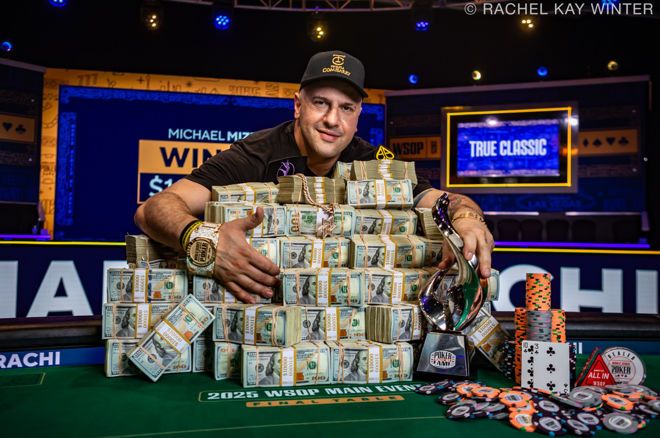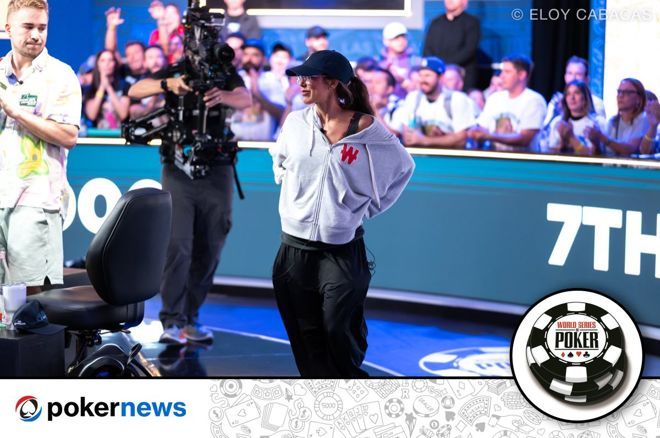【fishing slots】
View:8989
Privacy Policy
Share on Twitter Share on Facebook 5 min readTable Of Contents
- Lead-Up to Black Friday
- "This Domain Name Has Been Seized"
- Full Tilt Fallout
- Where Are We Now?
Video credit: Milko van Winden (production), Brad Whitehouse (production), Elliott Johnson (production & editing), Keith Becker (narration) & Connor Richards (script)
Poker suffered its darkest day in history on April 15, 2011 when the US government seized hundreds of millions of dollars in player funds and shut down the biggest online poker sites worldwide.
The incident, known as Black Friday, drastically changed the poker industry forever and led to tens of thousands of players being put out of work overnight and forced to find other sources of income. Many left poker altogether and never returned.
Black Friday also revealed mismanagement of funds by the leading poker site Full Tilt Poker and its executives Howard Lederer and Chris Ferguson, who at the time were among the most recognizable and respected faces in poker. It took several years for players to be paid back in full the money that had been deposited on their accounts.
More than a decade later, the impacts of Black Friday are still felt by poker players worldwide. Poker’s popularity had been at an all-time high and patches of online poker companies like PokerStars and Full Tilt Poker could be seen on players everywhere. It’s a much different landscape today, with poker largely out of the mainstream, much fewer sponsorships and limited televised coverage.
In a new PokerNewsvideo essay, we take a look at Black Friday, the darkest day in poker history that forever altered the online poker landscape and uncovered widespread mismanagement by some of poker’s biggest names.
Full Tilt Poker Scandal: The Darkest Days in Poker History
Lead-Up to Black Friday
Poker hit its peak in popularity during the Poker Boom of the early and mid-2000s. Following Chris Moneymaker’s iconic victory in the 2003 Main Event, poker sponsorships were going around like crazy and ads for big online poker brands like PokerStars and Full Tilt Poker couldn’t be avoided. The Full Tilt roster at this time included poker heavyweights like Phil Ivey, Tom Dwan, Mike Matusow, John Juanda, Gus Hansen, Jen Harman, Erik Seidel and Patrik Antonius.
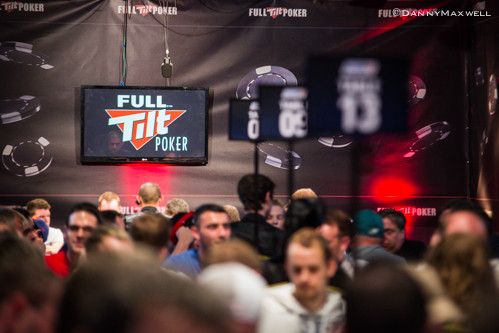
While poker was booming, a piece of legislation was about to question the legality of online poker in the United States.
In 2006, the US federal government enacted the Unlawful Internet Gambling Enforcement Act, or UIGEA, which prohibited gambling businesses from "knowingly accepting payments in connection with the participation of another person in a bet or wager that involves the use of the Internet and that is unlawful under any federal or state law."
The UIGEA went into full effect in 2010 and did not exclude games of skill like poker despite lobbying efforts from the Poker Players Alliance (PPA).
It was clear there was trouble brewing in the US online poker landscape, but sites continued to operate and players continued to deposit.
"This Domain Name Has Been Seized"
On April 15, 2011, US poker players awoke to see a US Department of Justice emblem when they tried logging into their online poker accounts.
“This domain name has been seized by the FBI pursuant to an Arrest Warrent … obtained by the United States Attorney’s Office,” the statement read in part, continuing that “Conducting, financing, managing, supervising, directing, or owning all or part of an illegal gambling business is a federal crime” and that “For persons engaged in the business of betting or wagering, it is also a federal crime to knowingly accept (funds) in connection with the participation of another person in unlawful Internet gambling.”
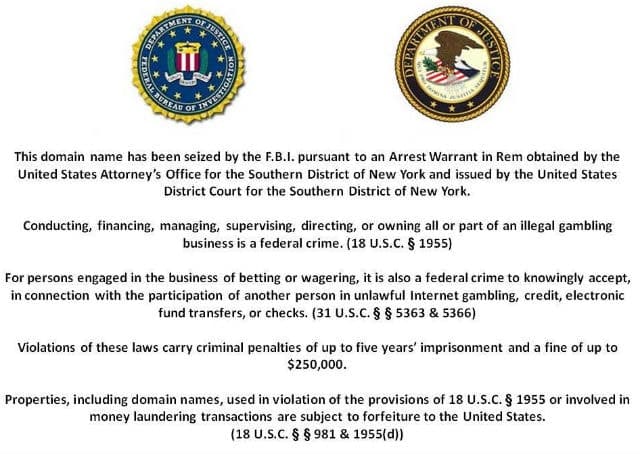
A federal indictment filed against PokerStars, Full Tilt Poker and Absolute Poker named 11 defendants, including PokerStars executive Isai Scheinberg, Full Tilt Poker’s Raymond Bitar and Nelson Burtnick; Absolute Poker’s Scott Tom and Brent Beckley and several payment processors.
The impacts of Black Friday were immediate. Overnight, thousands of US poker players were suddenly out of work. Countless poker players lost their sponsorships, including Prahlad Friedman, Maria Ho and heavy metal guitarist Scott Ian of the band Anthrax.
On April 20th, both Full Tilt Poker and PokerStars reached an agreement with the Department of Justice that allowed them to regain the use of their dot-com sites to help distribute player funds.
But the money at Full Tilt was gone. It was about to be revealed just how bad things were over at Full Tilt.
10 Years After Black Friday: Where Poker's Been and Where it's Going
Full Tilt Fallout
In September 2011, six months after Black Friday, it was revealed that Full Tilt Poker had paid out tens of millions to its executives using player funds and did not have the money to pay back players.
The US Attorney's Office amended its complaint to allege that Full Tilt Poker was a Ponzi scheme that Raymond Bitar, Howard Lederer, Chris Ferguson and Rafe Furst used to defraud players.
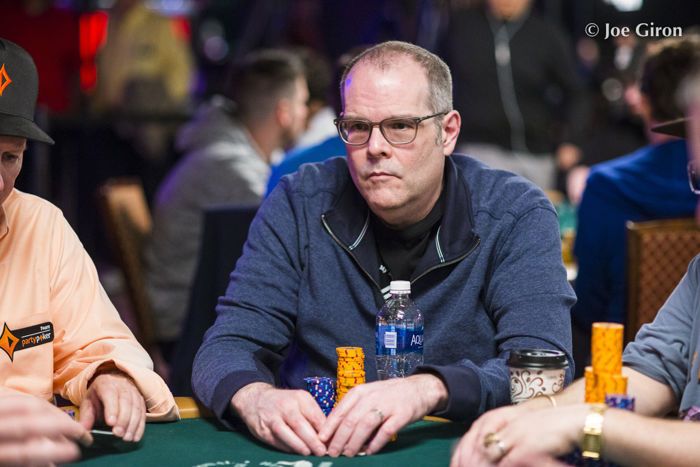
The complaint alleged that, as of March 2011, Full Tilt Poker owed approximately $390 million in player funds around the world, including $150 million to US players. However, Full Tilt only had $60 million on deposit in its bank accounts, meaning over $300 million was still owed to players worldwide.
The complaint further alleged that between April 2007 and April 2011, Bitar, Lederer, Ferguson and Furst lined their own pockets with approximately $443 million in players’ money.
After a year and a half of silence, Lederer spoke to PokerNewsin a lengthy interview published as the seven-part series The Lederer Files in 2012.
In 2012, PokerStars purchased Full Tilt Poker, taking hold of all Full Tilt assets and agreeing to forfeit $547 million to the US government over three years.
But it would take several years for millions of dollars to be paid back their Full Tilt deposits. Not knowing if they would ever see the money, many left poker and never returned.
Watch the Lederer Files Here
Where Are We Now?
While a few online poker executives served jail time, most got away with financial penalties and what many considered to be a slap on the wrist.
Howard Lederer and Chris Ferguson of Full Tilt Poker are considered pariahs in the poker community to this day, though Ferguson appeared at the 2017 World Series of Poker and wound up winning the Player of the Year distinction to the dismay of the community.
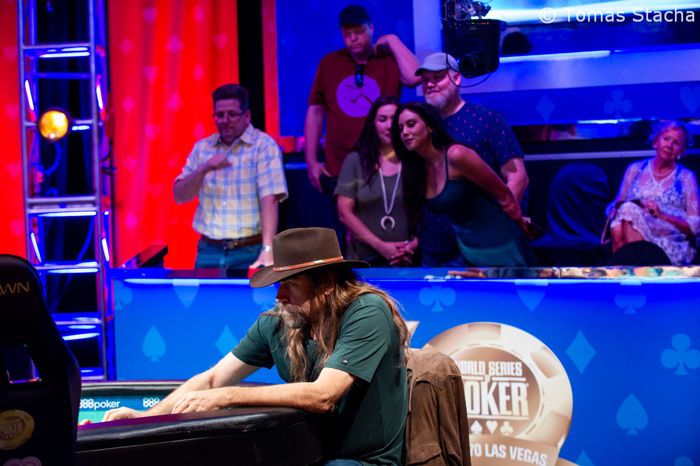
In March 2020, PokerStars founder Isai Scheinberg pleaded guilty to running an unlawful internet gambling business. Scheinberg avoided prison time and had to pay a fine of just $30,000, bringing the Black Friday saga to a close nearly a decade later.
So, what is the state of online poker in the US? Black Friday provided an opportunity for state-regulated online poker sites after several rulings that the Interstate Wire Act of 1961 did not apply to online poker. Nevada and Delaware both passed legislation legalizing online poker in 2013 and other states followed suit over the next decade including New Jersey, Pennsylvania, West Virginia and Michigan.
Several states have introduced online poker bills in recent years, including New York, Maryland, Virginia and Massachusetts. Meanwhile, states with legalized online poker have combined player pools through the Multi-State Internet Gaming Agreement (MSIGA), creating much-needed liquidity for US players.
Online poker will never be the same in the US, and Black Friday remains a cautionary reminder of the devastating consequences of skirting government regulations, ignoring warning signs and improperly managing player funds.
Pennsylvania Gaming Board Says Multi-State Poker is Just Weeks Away
Add to cart





